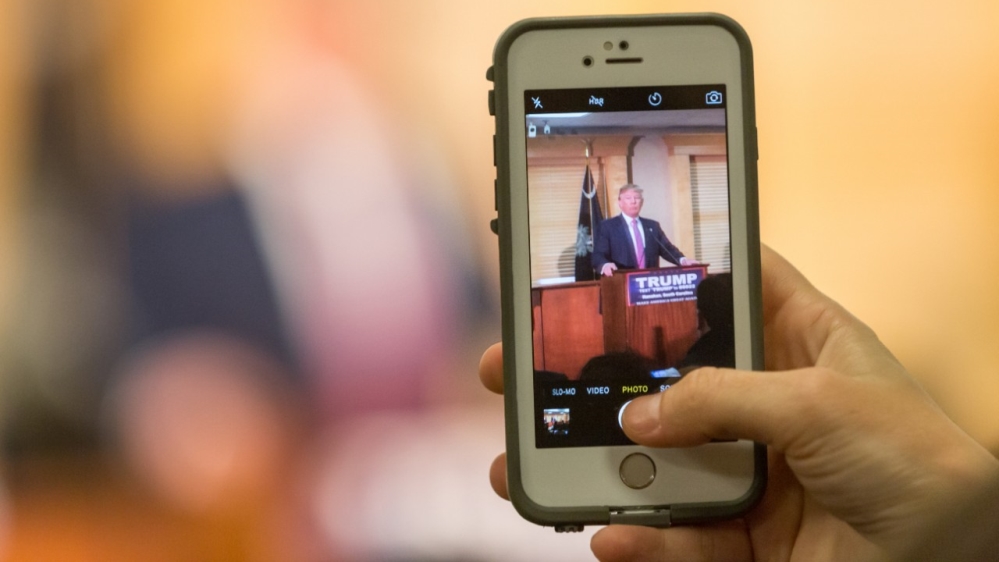Trump escalates Twitter, social media war after fact-check move
The move appears to be more about politics than substance, Trump critics warned.

United States President Donald Trump has escalated his war on social media companies, signing an executive order on Thursday challenging the liability protections in US law that serve as a bedrock for unfettered speech on the internet.
The move followed Twitter’s decision to apply fact checks to two of his tweets about voting.
Keep reading
list of 2 itemsThe Conspiracy Virus: COVID-19 misinformation in the US
Trump said the fact checks were “editorial decisions” by Twitter and amounted to political activism. He said it should cost those companies their protection from lawsuits for what is posted on their platforms.
Trump and his allies, who rely heavily on Twitter to attack their foes, have long accused the tech giants of targeting conservatives on social media by fact-checking them or removing their posts.
“We’re fed up with it,” Trump said, claiming the order would uphold freedom of speech.
Companies like Twitter and Facebook are granted liability protection under Section 230 of the Communications Decency Act because they are treated as “platforms”, rather than “publishers”, which can face lawsuits over content.
“What I think we can say is that we’e going to regulate it,” Trump said before signing it/
Twitter called the order “a reactionary and politicized approach to a landmark law” and said attempts to weaken Section 230 would “threaten the future of online speech.”
The order directs executive branch agencies to ask independent rule-making agencies including the Federal Communications Commission and the Federal Trade Commission to study whether they can place new regulations on the companies.
Jack Balkin, a constitutional law professor at Yale University said Trump, who is seeking a second term in November, “is seeking to frighten, coerce, scare, cajole social media companies to leave him alone and not do what Twitter has just done to him.”
Experts are doubtful that much could be done without an act of Congress although Trump has said he would push for legislative action as well.
A similar executive order was previously considered by the administration, but shelved over concerns that it could not pass legal muster and that it violated conservative principles on deregulation and free speech.
‘Plainly illegal’
On Wednesday, Twitter CEO Jack Dorsey tweeted, “We’ll continue to point out incorrect or disputed information about elections globally.”
Dorsey added: “This does not make us an ‘arbiter of truth.’ Our intention is to connect the dots of conflicting statements and show the information in dispute so people can judge for themselves.”
On the other hand, Facebook CEO Mark Zuckerberg told Fox News his platform had “a different policy, I think, than Twitter on this.”
“I just believe strongly that Facebook shouldn’t be the arbiter of truth of everything that people say online,” he said.

The president’s critics, meanwhile, criticised the platforms for allowing him to put forth false or misleading information that could confuse voters.
“Donald Trump’s order is plainly illegal,” said Senator Ron Wyden, a Democrat and advocate for internet freedoms. He is “desperately trying to steal for himself the power of the courts and Congress … all for the ability to spread unfiltered lies.”
Trump’s proposal has multiple, serious legal problems and is unlikely to survive a challenge, according to Matt Schruers, president of the Computer and Communications Industry Association, a Washington, DC-based organisation that represents computer and internet companies.
It would also seem to be an assault on the same online freedom that enabled social media platforms to flourish in the first place – and made them such an effective microphone for Trump and other politicians.
“The irony that is lost here is that if these protections were to go away, social media services would be far more aggressive in moderating content and terminating accounts,” Schruers said.